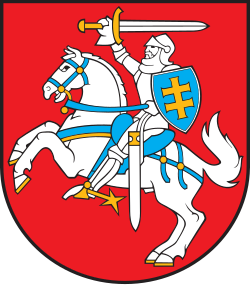| | ||
| ||
| Outcome | Proposal failed as less than 50% of registered voters voted in favour | |
|---|---|---|
 |
|---|
| |
A referendum on a law revoking privatisation deals was held in Lithuania on 27 August 1994. [1] The proposed law put forward procedures for reversing privatisation deals conducted in a non-transparent manner, as well as compensating citizens for the loss of savings caused by inflation. [2] A total of eight questions were asked, and although around 89% voted in favour of all of them, the voter turnout of 40% meant that the threshold of 50% of registered voters voting in favour was not passed, resulting in the proposal failing. [2]